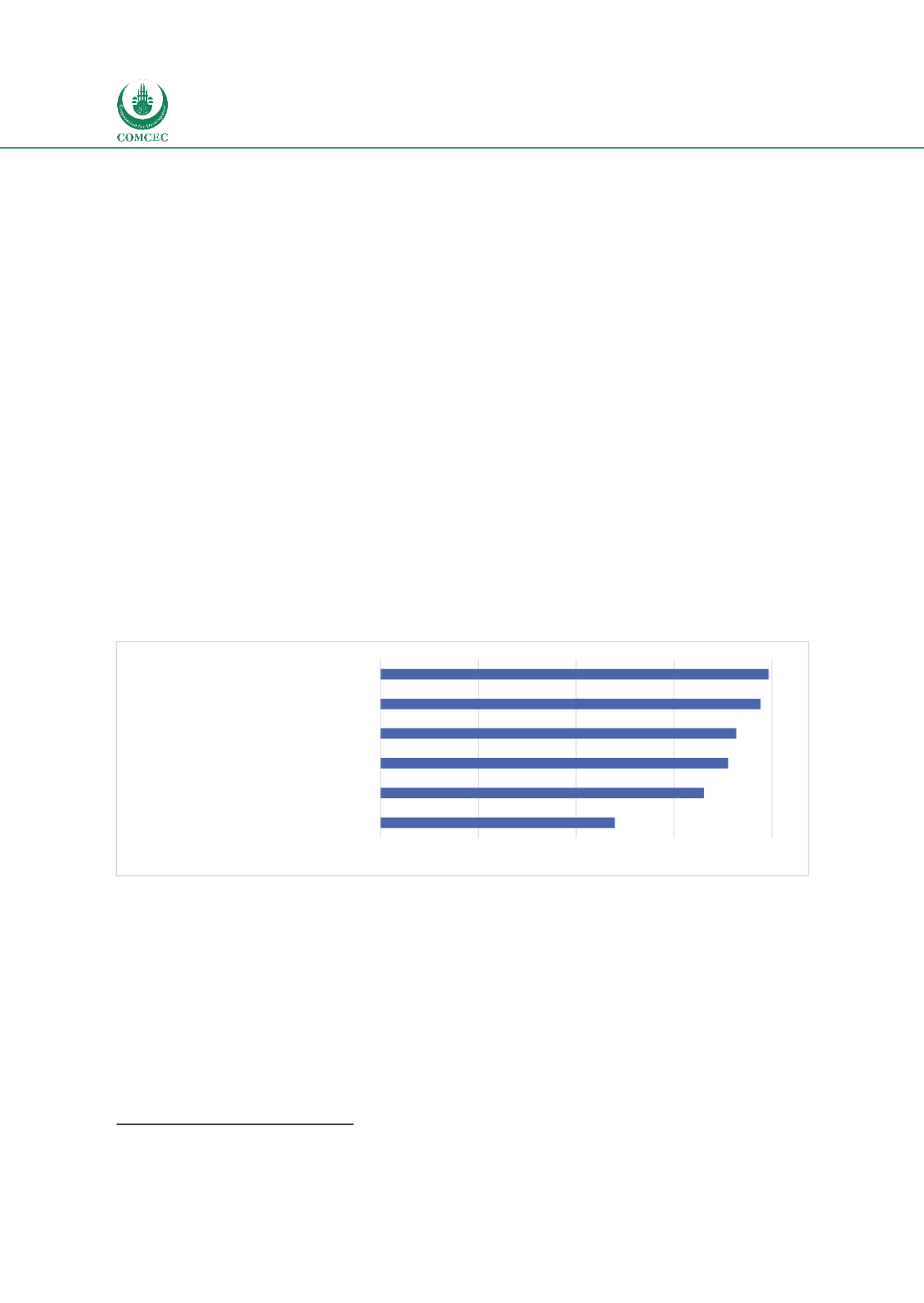

Muslim Friendly Tourism:
Regulating Accommodation Establishments
In the OIC Member Countries
48
It is important to note that the emergence of multiple MFT standards could also be a
hindrance to the development of the MFT sector, as the consumer survey indicated that a
large percent of Muslim travelers (61%) would find the presence of multiple standards to be
confusing
109
which would negate the marketing benefits that hotels seek in adopting MFT
standards.
When government officials interviewed within the context of this study were asked about the
challenges in increasing the rate of establishments adopting a Muslim-friendly
accommodation standard, most interviewees mentioned the cost and the procedures involved
in getting MFT certification while many mentioned the risk of alienating non-Muslim guests.
The Malaysian government official cited the difficulty of getting industry buy-in and their
preference for voluntary standards.
As for accommodation sector survey respondents, when they were asked about the
challenges in following a Muslim-friendly accommodation standard, the procedures to obtain
certification topped the list of challenges (40%) followed closely by the risk of alienating non-
Muslim guests (39%). As shown by the following graph, costs associated with MFT
certification, training employees and altering facilities to offer MFT services were also cited
by at least a third of the respondents. A quarter of the respondents cited the loss of revenues
from alcohol as one of the challenges in following an MFT standard.
Figure 125: Accommodation Sector Survey - Challenges in Adopting MFT Standards
Source: DinarStandard
3.6
Lessons Learned
Some of the current MFT standards have employed a number of successful strategies to deal
with the challenges facing the development, implementation and adoption of the standards. In
developing standards, feedback is collected from many key stakeholders in “Halal” and
accommodation sectors and all MFT key terms are consistently defined, as in the case of
Malaysia. To facilitate implementation, training on standards is provided. To increase
standard adoption, standards are simplified and self-evaluation is allowed as an initial step
for basic levels.
109
“Muslim Friendly Tourism: Developing and Marketing MFT Products and Services In the OIC Member Countries” Report.
8th COMCEC TourismWorking Group. August 2016. Web.
24,0%
33,1%
35,5%
36,4%
38,8%
39,7%
0,0%
10,0%
20,0%
30,0%
40,0%
Lower revenues from banning alcohol
Cost of altering facilities
Cost of training employees
Cost of obtaining certification
Risk of alienating non-Muslim guests
Procedures to obtain certification
















